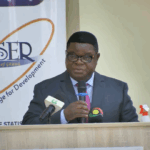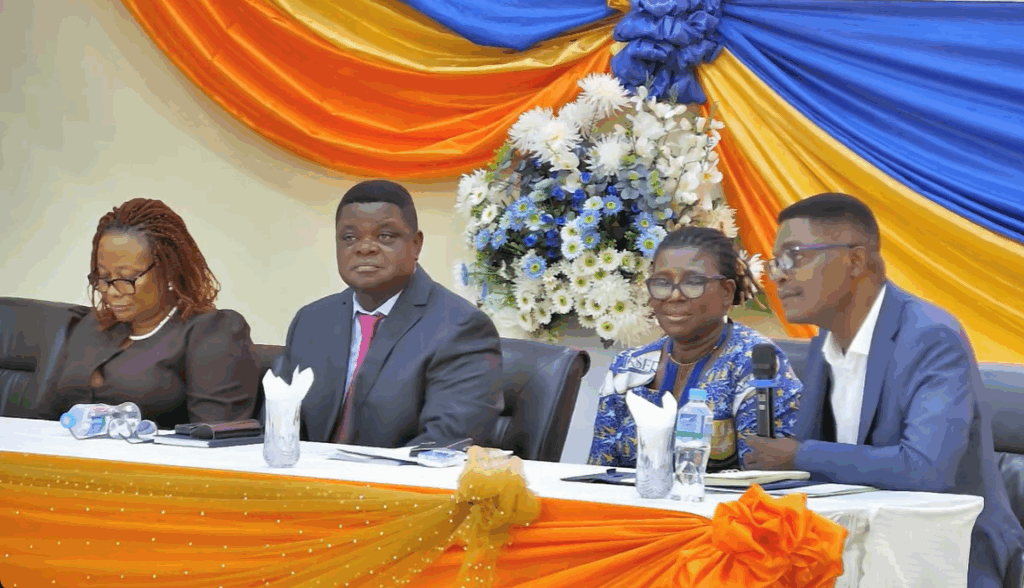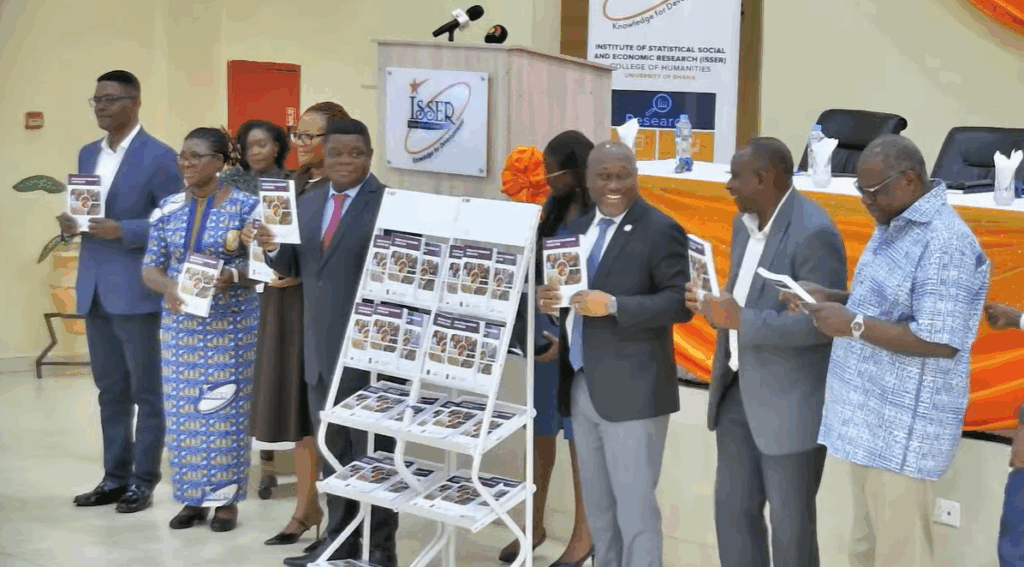
Professor Peter Quartey, Director of the Institute of Statistical, Social and Economic Research (ISSER) at the University of Ghana, has called on industry players and private sector actors to actively support research and dissemination initiatives that can help shape public policy and foster inclusive national development.
He pointed to the critical role of collaboration in translating research findings into actionable outcomes that improve lives and inform governance.
Professor Quartey made the call during the launch in Accra of the 7th edition of Ghana Social Development Outlook (GSDO) 2024, one of ISSER’s flagship biennial publications, on Thursday.
“Dissemination and advocacy are critical in ensuring research translates into impact. Rigorous analysis must reach those who can use it to improve lives and shape policy,” he emphasised.
He noted that ISSER has over the years benefited from the contributions of partners such as the Agricultural Development Bank (ADB) Ghana, whose support has enabled wider distribution of research outputs through policy briefs, stakeholder forums, and media engagements.
“I take this opportunity to call on other industry players and private sector actors to support research and dissemination initiatives. This is one of the surest ways of driving informed decision-making and contributing to sustainable development,” he urged.

Tracing the evolution of the GSDO, Professor Quartey praised ISSER’s Social Division for maintaining the quality and relevance of the publication since its first edition in 2012.
The 2024 report, the seventh in the series, provides a comprehensive, data-driven analysis of Ghana’s progress in key social sectors, including education, health, housing, water and sanitation, employment, energy, gender, population dynamics, and social equity.
He said the Social Development Outlook complements the State of the Ghanaian Economy Report, which is produced annually.
He explained that while economic indicators are reviewed each year, most social indicators take longer to shift, which is why the GSDO is published every two years.
Professor Quartey expressed gratitude to the current team of contributors and reviewers, for their leadership and commitment. He also acknowledged the foundational work done by former directors and researchers of ISSER, noting that their efforts have sustained the publication through even the most challenging times.
“Even during the COVID-19 pandemic in 2020, we managed to produce the report. That shows our commitment to knowledge-sharing and national development,” he said.

Professor Quartey highlighted ISSER’s growing commitment to making research findings more accessible to the public, policy actors, and development partners.
He cited the success of a 2022 outreach event at the University of Education, Winneba, where the 2020 edition of the GSDO was discussed with students, researchers, and local stakeholders.
In 2023, ISSER released 10 policy briefs summarising the main chapters of the 2022 edition to improve public engagement and accessibility.
The 2024 edition, he disclosed, will also be accompanied by a new set of policy briefs to further enhance understanding and practical application of the findings.
“We encourage all stakeholders to engage with both the full report and the policy briefs, and to share feedback that can help shape future editions and inform broader development conversations,” he said.
Professor Quartey reaffirmed ISSER’s commitment to inclusive, evidence-based development and called for a collective effort to ensure that research continues to play a central role in shaping Ghana’s future.
